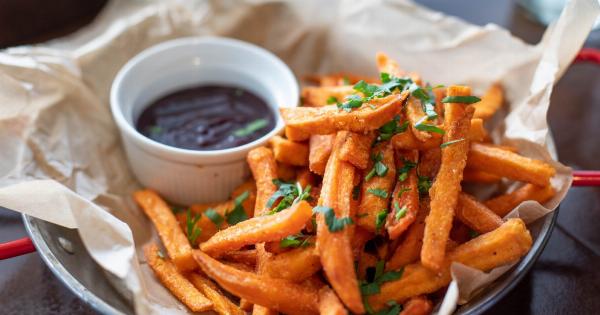Junk food addiction is a real phenomenon. People often find it difficult to resist the temptation of eating junk food, despite knowing its harmful effects.
In this article, we will explore how junk food triggers addiction and what can be done to overcome this addiction.
What is Junk Food Addiction?
Before we delve into how junk food triggers addiction, it’s important to understand what junk food addiction is. Junk food addiction is a type of food addiction that is caused by the overconsumption of high-fat and high-sugar foods.
These foods trigger a release of dopamine in the brain, which makes us feel good, temporarily. The problem is that this dopamine release is short-lived, which causes us to crave more junk food to keep the feeling going.
How Does Junk Food Trigger Addiction?
The high fat and sugar content in junk food is what makes it so addictive. When we eat junk food, our brains release dopamine, a neurotransmitter that regulates our reward and pleasure centers.
The dopamine release in our brains causes us to feel good, happy, and satisfied. However, over time, our brains become desensitized to the dopamine release, which means we need more junk food to feel the same level of satisfaction.
Junk food also causes changes in our brain chemistry. Studies have found that people who frequently consume junk food have lower serotonin levels than those who don’t. Serotonin is a neurotransmitter that helps regulate our mood and appetite.
Low levels of serotonin can lead to depression, anxiety, and increased appetite, which can make us crave more junk food.
What Makes Junk Food So Addictive?
There are several reasons why junk food is so addictive:.
Sugar
The high sugar content in junk food triggers the release of dopamine in the brain, which makes us feel good. This dopamine release can cause us to crave more sugar, which can lead to a cycle of addiction.
Fat
Fat is an essential nutrient that our bodies need to function properly. However, when we consume too much fat, our bodies store it as body fat, which can lead to weight gain and obesity.
Junk food is often high in fat, which can make it addictive, as our bodies crave the high-fat content.
Salt
The high salt content in junk food can also trigger addiction. Salt activates the same pleasure centers in the brain as sugar and fat, which can make us crave more junk food.
What are the Effects of Junk Food Addiction?
Junk food addiction can have both short-term and long-term effects on our health:.
Short-term Effects
- Weight gain and obesity
- Increased risk of heart disease and stroke
- Inflammation and joint pain
- Poor concentration and brain fog
- Increased risk of depression and anxiety
- Poor sleep quality
Long-term Effects
- Type 2 diabetes
- High blood pressure
- Increased risk of cancer
- Kidney disease
- Liver disease
- Dementia
How to Overcome Junk Food Addiction
Overcoming junk food addiction can be challenging, but it is possible. Here are some tips to help you overcome junk food addiction:.
Find Healthy Alternatives
Instead of reaching for junk food, try to find healthy alternatives that are just as satisfying. Fruit, vegetables, nuts, and seeds are all great options that can satisfy your cravings without the negative consequences of junk food.
Avoid Triggers
Identify the triggers that cause you to crave junk food, such as stress or boredom, and find ways to avoid them. Taking a walk, reading a book, or calling a friend can all be great distractions that can help you avoid the temptation of junk food.
Plan Your Meals
Planning your meals in advance can help you avoid the temptation of junk food. Knowing what you are going to eat for each meal can reduce the likelihood of impulsive junk food purchases.
Stay Hydrated
Drinking plenty of water can help reduce your cravings for junk food. Dehydration can make us feel hungry and tired, which can lead to cravings for junk food.
Get Enough Sleep
Lack of sleep can disrupt our hunger hormones and increase our cravings for junk food. Aim to get at least 7-8 hours of sleep each night to reduce your cravings for junk food.
Conclusion
Junk food addiction is a real problem that affects many people. Understanding how junk food triggers addiction is the first step in overcoming this addiction.
By identifying your triggers, finding healthy alternatives, and taking care of your body, you can overcome junk food addiction and live a healthier life.






























